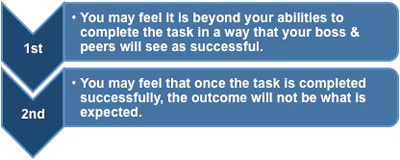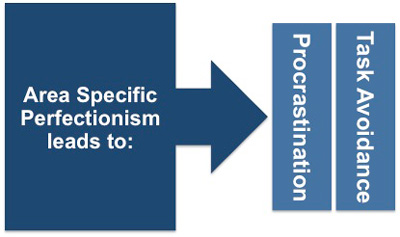Stop Procrastinating - Tasks You Don't Know How to Begin
This is another very common trigger, particularly when there are two or more equally valid approaches to the task. It could be that:
You don't feel you have the authority to make this fundamental decision,
You don't have the information you need to make it or
You simply can't decide on the 'best' course of action.
In the first two cases it is up to you to get the authority or the information. The third case is more common and more difficult. Remember, the key word here is 'best.' It probably doesn't matter if you don't pick the 'best' way forward as long as you do actually move forward towards your goal.
Very often the best way of achieving something simply cannot be known in advance; it may even be the first time this task has been performed in your organization. In either case you will often arrive at the final solution in an indirect way.
Whether you feel comfortable with this approach will depend on the culture within your organization and it may be necessary to cover yourself by asking for input from your boss or your peers. If you do this then it is always best to put forward the most likely options with a list of the pros and cons of each.
The opposite is also true and sometimes the only way to discover that something won't work is to try it and see. This may be due to new circumstances surrounding the task or external factors that have altered the environment in which the task will be performed. Our Overcoming Procrastination eBook is designed to help you understand the problem better and learn some successful ways of dealing with it.
You Are Afraid of Failure
The reason for your fear of failure can be broken down into two separate areas of your feelings.
 |
These are quite different things. In the first case, it is your reservations about your own abilities that is causing you concern. In the second case it is the wisdom of undertaking the task at all. In both of these cases your tendency to procrastinate is a result of trying to retain a positive self-image by not being associated with failure.
The second case is probably the easiest to deal with in that all you need to do is agree with the stakeholders what you are being asked to deliver and to make sure that they are aware of any reservations you may have. It is important not to phrase your concerns in a negative way but only to appear to seek clarification of what you are being asked to do.
If you are still worried, then make sure that all of your concerns are detailed in writing, for example in emails, and keep these to cover yourself in case of recriminations in the future. By keeping the communications of your progress with the task in the forefront of these people's minds you will avoid any unexpected surprises.
If your reservations and concerns are to do with your own abilities then you should think carefully about what exactly is at the root of your fear. It could be that one of the other triggers is the primary cause.
For example:
The task may appear overwhelming and you may feel that failure is inevitable. In which case the fear of failure is really a symptom rather than a cause.
When fear of failure is a trigger for procrastination then this is usually a result of perfectionism on the part of the procrastinator. Perfectionism can be defined as:
'A propensity for being displeased with anything that is not perfect or does not meet extremely high standards.'
It is characterized by feelings that whatever you achieve it is never good enough because it falls short of perfection.
 |
Perfectionism is often set in motion early in life by parents and older siblings, particularly if there is a history of high academic achievement in the family.
Perfectionists set themselves unreachable goals that they then blame themselves for not reaching. This constant pressure to achieve perfection and the resulting inevitable failure leads perfectionists to be self-critical and self-blaming which results in lower self-esteem.
At some point, certain mental processes kick in unconsciously to preserve the perfectionist's self-image. The logic goes something like this:
'If I try hard and fail, that is worse than if I don't try and end up failing. In the former case, I gave it my best and failed. In the latter, because I really did not try, I truly did not fail.'
Procrastination is used by perfectionists to try to convince themselves that shortage of time is the reason for the lack of perfection in the completed task rather than lack of intrinsic ability.
Perfectionism is really a tendency that exists on a continuum rather than being something that is either present or absent. People who suffer from extreme perfectionism are often depressed and withdrawn and usually need professional psychiatric help to overcome their low self-esteem.
At the other end of the continuum, many people feel that there are some areas that they ought to excel at and these are often tied up with professional pride and a positive self-image. In instances where performance in a particular task may highlight these areas people may choose to procrastinate rather than risk having their ability in these areas actually put to the test.
For example: someone whose positive self-image is based on being an expert negotiator may put off dealing with a particular supplier because they are afraid that they may come off second-best in this case and this will undermine their self-image.
This type of low-level or area-specific perfectionism is not uncommon and often leads to procrastination or task avoidance. If you feel as though you may avoid starting certain tasks because you don't think that you could do them perfectly then it is important that you face up to it and try to overcome it.
 |
The most effective thing you can do is to be clear about what your boss or co-workers would consider a successful outcome to look like. Very often this will be far simpler to achieve than your own idea of perfection. After all most of the deliverables that we are required to produce in the workplace need to fulfill a particular function and as long as they do so they are considered successful.
For example, it is far more important that an internal report provides accurate and timely information than how fancy it looks. If time does not allow for all areas to be thoroughly researched then you detail any assumptions you have had to make in the report. You can also highlight any areas you feel need further clarification.
Most decision-makers would rather have the necessary information on time and unadorned than the same information beautifully presented but a day late. It is important to remember that your report is only part of this process and the timeframe given is essential to the overall success of the larger picture.
Similarly, if you are responsible for dealing with a customer or supplier, does your boss really expect you to get all of the organization's demands met every single time with absolutely no compromises? It is all too easy to go into negotiations with a list of ideal outcomes and to imagine that unless these are achieved then you will have failed. The reality is that most things are agreed by compromise and your list of ideal outcomes may be wholly unrealistic.
You may also be interested in:
Stop Procrastinating | Symptoms of Procrastination | Why People Procrastinate | Dealing with Boring or Pointless Tasks | Dealing With Tasks Involving Confrontation | Tasks You Resent Being Given | Tasks That Appear Overwhelming | Tasks You Are Afraid of Completing | Lack of Motivation.



